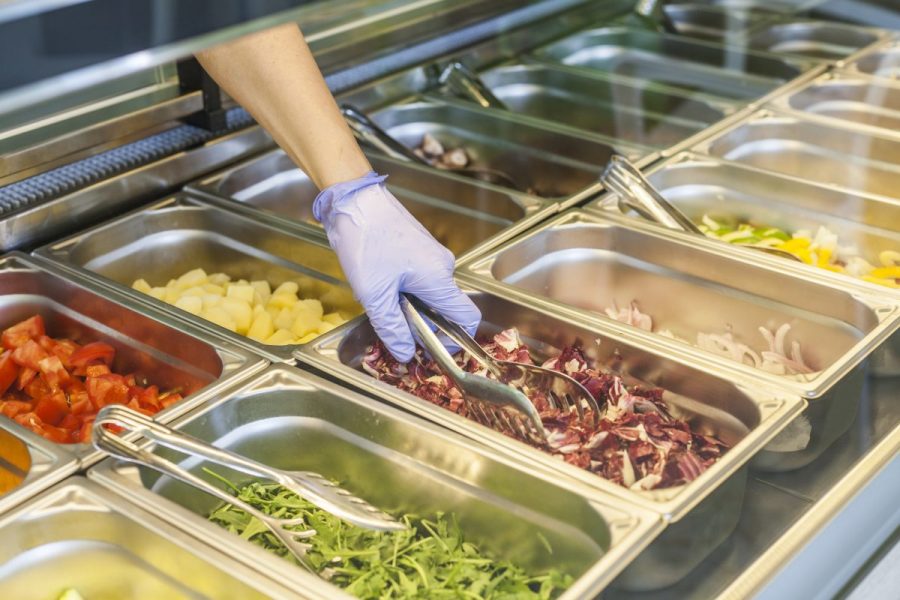In furthering the Institute’s leadership in advancing sustainability initiatives, BCIT has joined Feed BC – a provincial initiative that aims to increase the use of BC-sourced food ingredients across government-supported facilities, programs, and services.
Food and drink are responsible for 26% of the BCIT Burnaby Campus’ total ecological footprint. While Chartwells, BCIT’s on-campus food services and catering supplier, already sources 90% of its on-campus food within Canada, sourcing locally in BC will further reduce BCIT’s food transport emissions. To date, BCIT has managed to source more than 30% of its food locally.
“By sourcing local food ingredients, BCIT is advancing sustainability and contributing to the economic resilience of the food industry,” explains Vince Laxton, Director, Corporate Services, BCIT. “This reflects BCIT’s strength in partnering with government and industry towards the economic development of BC.”
In raising awareness and support for the local food industry, BCIT participated in the Pitch and Plate event in mid-November 2022. Similar to Dragon’s Den, the Pitch and Plate event is an interactive way to meet local food providers while ensuring sustainability is embedded across more BCIT foodservice menu options. The BCIT food operations team were pitched local products from sustainable and health-conscious BC brands like Vancouver’s Panela Lemon and Goodly Foods, as well as Kelowna-based Motherlove Kombucha.
Have you subscribed? Sign-up to receive the latest news on BCIT.
“The Pitch and Plate event is an interactive way to support BC businesses while ensuring sustainability is embedded across more BCIT foodservice menu options,” adds Vince.
“The more we support local food makers and suppliers, the better,” said Mebs Lalani, BC Regional Director of Chartwells. “We are directly benefiting our local businesses, its people, and the food system.”
In addition to Feed BC, Chartwells and BCIT supports in advancing sustainable food services by choosing local, low-packaging, unprocessed foods and energy efficiency in the kitchen, promoting humane animal treatment and farming by using free run, free range eggs, as well as serving Fair Trade coffee.
“Our team is on a journey to be Net Zero by 2050 through our Planet Promise commitment and one of the clear paths to reaching that goal is to be extra diligent when purchasing food. Whether it is focusing on low-packaging items or sourcing from local food makers – our food choices matter,” said Lalani.
LEARN MORE: Sustainable initiatives from BCIT Food Operations.

This is very good post.
I was wondering why there hasn’t been an initiative to have campus-grown food for students. What I mean is that of course it would require a large-scale community garden to serve students but at least this would lower the GHG emissions significantly; lower travel distance, lower GHG emissions.
Hi Hadi! Did you know that BCIT has a network of edible gardens? Planting fruit trees, and other edible plants is part of our strategy to encourage pollinators, such as bees and birds. This supports biodiversity, as well as provides foraging opportunities for those on campus. View the BCIT Edible Garden Foraging Map here.